Catalogue > Faire une recherche
Résultats pour : Espagne + Catalogue 2023
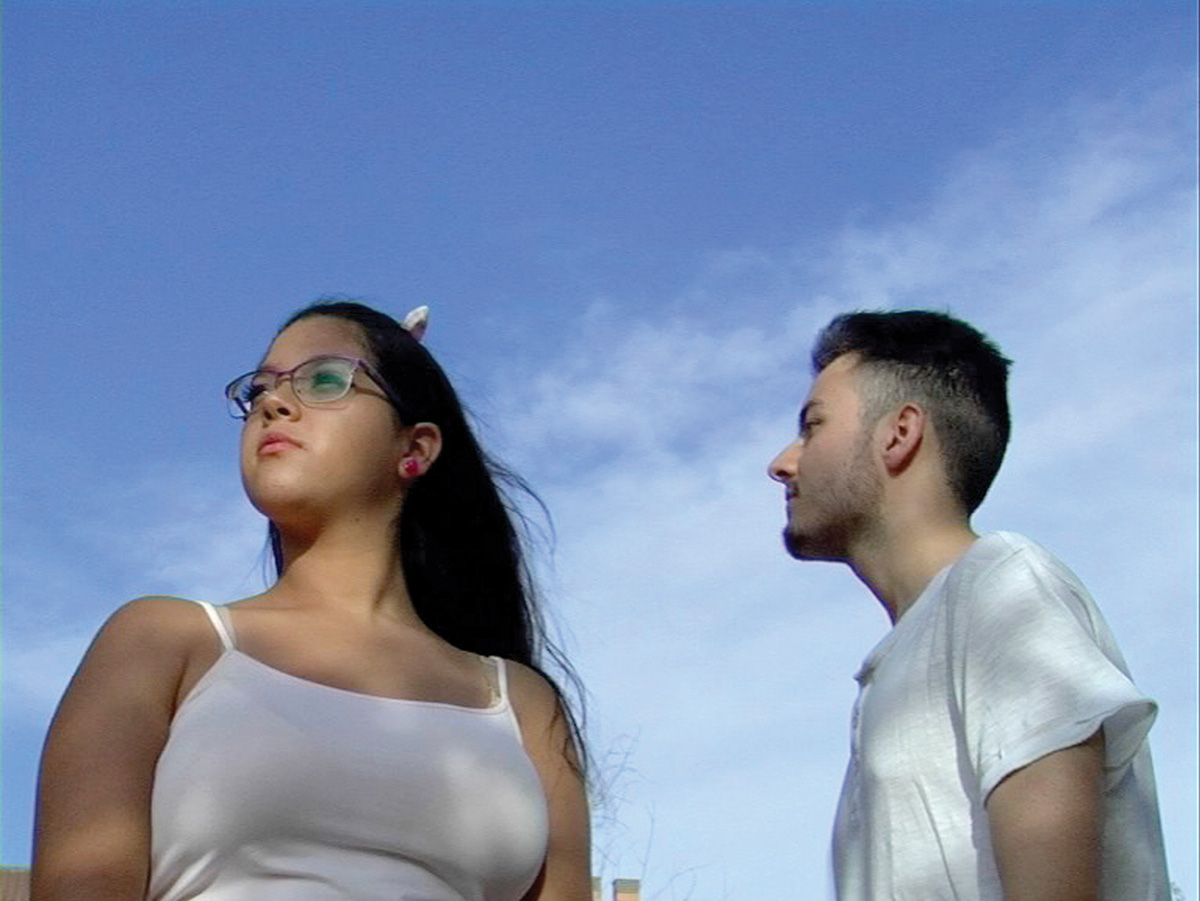

Christian Bagnat, Elvira Sánchez Poxon
Tembiapo Pyharegua
Doc. expérimental | hdv | couleur et n&b | 120:0 | Argentine, Espagne | 2022
Tembiapo Pyharegua (Night Work) is a cinematographic chronicle that follows the life of a Paraguayan Guarani-speaking community that settled in Cuenca, Spain. The title refers to those nights where the impossible is dreamed and lived, that time of life between working hours. That is where we stop and observe how they recover their time. And how they spend their leisure hours. During those nights they name the things they are willing to do when they return to their country. Desires, dreams, future projects: every day they say them out loud, as if it were a spell. A record of this future is slowly being made, night by night.
Christian Bagnat. Argentina 1971. Studied Art and later Film. Night Work, first feature film co-directed with Elvira Sánchez Poxon. It’s filmed in Cuenca over seven years, using a particular method of work that reflects on the changes and events that occur in a small town. He works creating a film archive about the Latin diaspora in Spain. Elvira Sánchez Poxon Madrid 1977. She studied Fine Arts at the UCM and developed works in the field of painting and experimental sound stories. In the meantime, she studied film, collaborating regularly with Christian Bagnat. They co-directed the short film Pablo and Night Work is their first feature film.
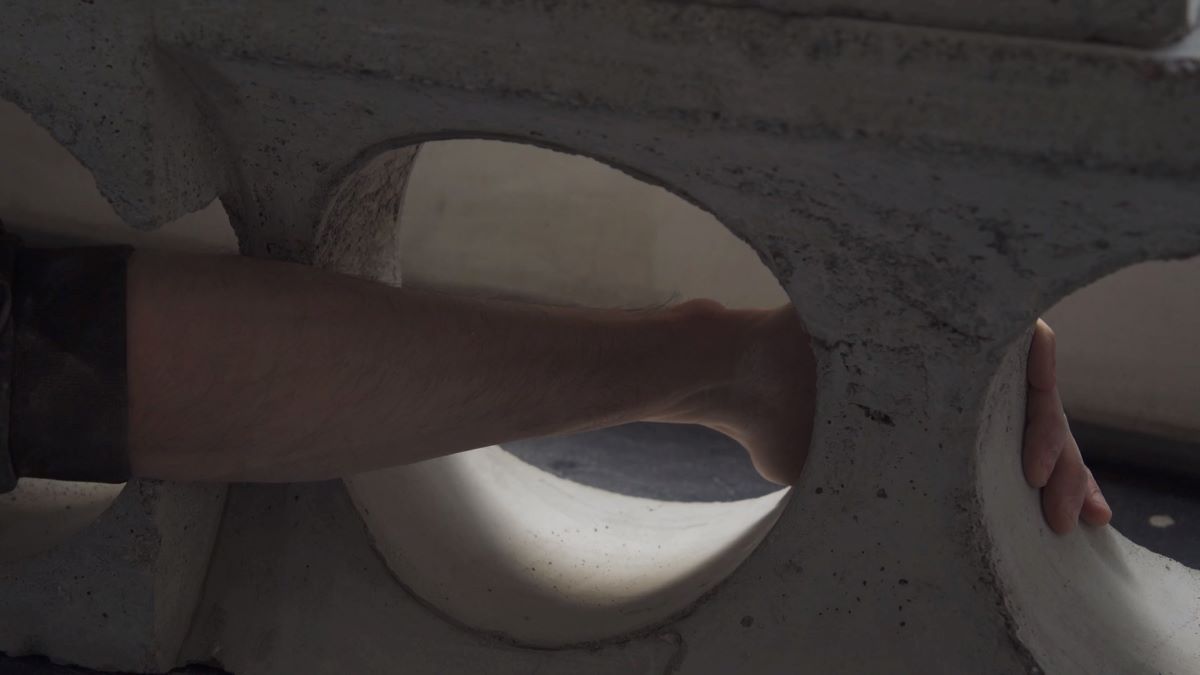

Maddi Barber, June Crespo
CORE
Film expérimental | mov | couleur | 21:22 | Espagne | 2022
Someone is sleeping. A conveyor belt moves stones in an underground place. The stones fall through a hole in the shape of a mouth. Some hands go through a piece of concrete. Someone operates a knob that crushes the stone. In CORE, we document the different states through which the material passes: stone, dust, liquid and solid. Moving between the surface of things and underneath them, we interweave two apparently distant processes: hands traversing and manipulating cement sculptures and the process of extracting and transforming stones in a quarry. An encounter and friction between materials that is in turn the result of the meeting and negotiation of two languages, the sculptural and the cinematographic.
JUNE BIO June Crespo (Pamplona 1982) graduated in Fine Arts from the University of the Basque Country in 2005 and participated in the De Ateliers residency programme (Amsterdam 2015-2017). Her solo exhibitions include: entre alguien y algo (2022) and Ser dos (2017) at CarrerasMugica gallery, Bilbao; Helmets (2020) at Artium, Vitoria-Gasteiz; Voy, sí (2020) Heinrich Ehrhardt gallery, Madrid and No Osso (2019) at Uma Certa Falta de Coêrencia, Oporto. She has recently participated in group exhibitions such as: The Milk of Dreams, Venice Biennale 2022; Fata Morgana, Jeu de Paume (Paris) or El sentido de la Escultura at the Miró Foundation (Barcelona). MADDI BIO Maddi Barber (Valle de Arce, 1988) has a degree in Audiovisual Communication and an MA in Visual Anthropology from the University of Manchester. Her work has been shown at festivals such as Visions du Réel, FidMarseille, San Sebastian (Zabaltegi), Curtocircuito, Zinebi, Ji.hlava, Porto Post Doc and Las Palmas, among others. They have also been exhibited in museums and centres such as La Panera, Artium and the Oteiza Museum. She is currently working on the development of his first feature film, "Claros de bosque".
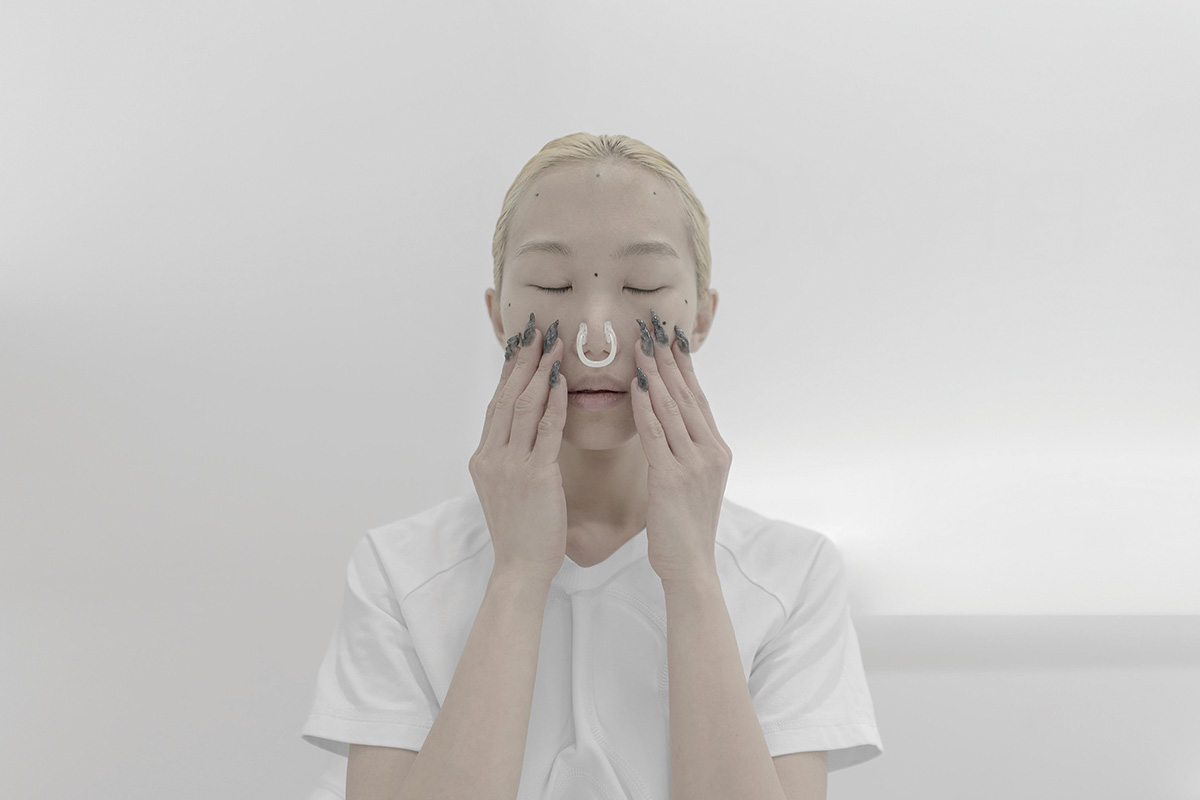

Mit Borrás
Hanaba
Fiction expérimentale | 4k | couleur | 10:0 | Espagne | 2022
Hanaba belongs to a speculative future and lives isolated in a new cave with a heavenly aspect, an aseptic laboratory surrounded on the outside by an uninhabited natural environment where time seems to stand still. The protagonist of Hanaba, a term whose meaning comes from the scientific concept of "new mutant flower whose DNA has been isolated", transits between their human nature and their dream of transcending and merging with nature through technology. This idea takes shape during Hanaba's meditations where their recurrently dream of being a drone that crosses a forest like a ghost. We can see how Hanaba develope scientific studies devoted to biotechnology, geology and the meaning of conservation of human body. Progress becomes a new cult, mediated by nature through the ceremonial use of flowers, chants and the ingestion of psychoactive plants as a way to travel to a transhumanist transcendence and total adaptation to nature. A film created by Mit Borrás, with the art direction of Rachel Lamot, with script by Mit Borrás and Rachel Lamot, music by Daniel Vacas Peralta the fashion designs of Kim Rosario and Path by Janine Grosche, the special participation of Weixin Quek Chong as Hanaba and the production team.
Mit Borrás is a visual artist based in Madrid and Berlin. His work examines the relationship between human, nature and technology, their purpose of evolution and the idea of death and eternal life with a transhumanist perspective. He has developed a work complex that encompasses visions of a post-human state of consciousness. Its center of focus is based on the interconnectivity between biodiversity and technological progress. His work has been exhibited at Pompidou, Paris (2022), Art Dubai, UAE (2022), Hara Museum, Tokyo (2010), Exgirlfriend Gallery, Berlin (2016-21), Tick Tack Gallery, Antwerp (2021), The Wrong Bienale, Paris (2021), Harddiskmuseum, Paris (2020), Arebyte Gallery, London (2019), Dimora Artica, Milan (2018), Frontviews, Vienna (2019) Berlin (2018), Aleph Projects, Tel Aviv (2017), Biennial of Media Arts of Chile, (2017), Palacio Fernandini, Lima (2016), Museo de Bellas Artes de Chile (2017), Loop Barcelona (2010,15-19) and Transmediale, Berlin (2011) among others. He has directed the production of digital art festivals as independent curator, co-directed Fünf Galerie in Berlin (2010-14) and worked as coordinator of cultural projects at Instituto Cervantes in Berlin (2014). His work is represented in by House of Chappaz gallery and is member of the art collective Frontviews in Berlin.
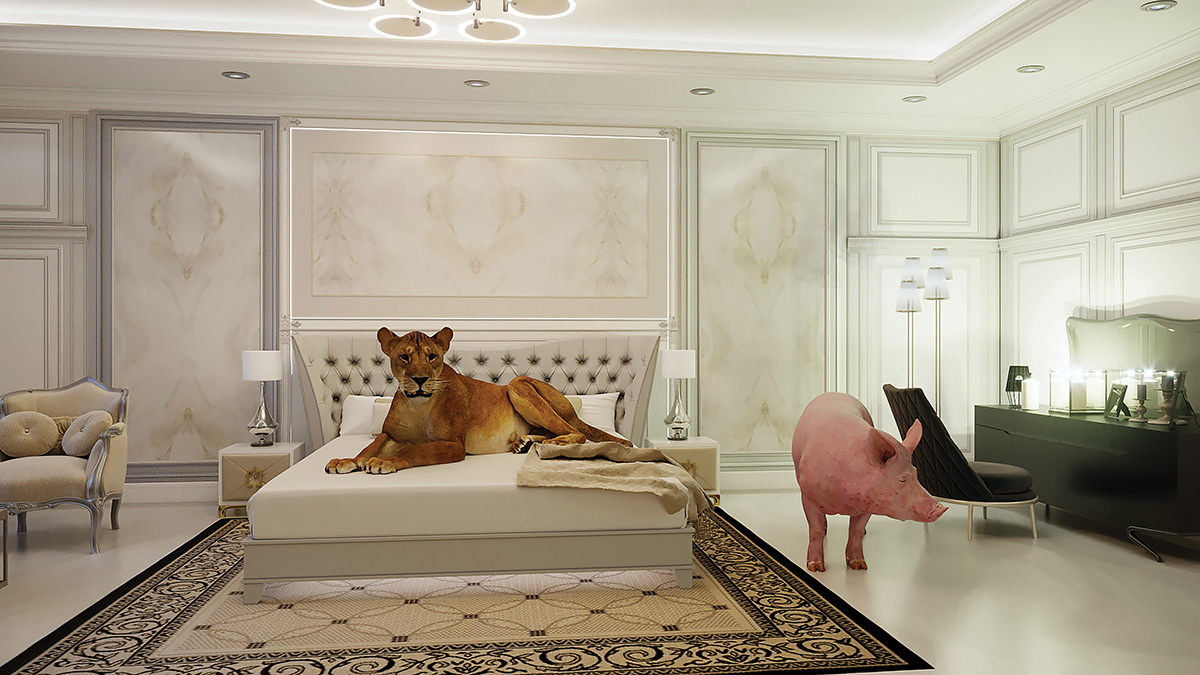

Brit Bunkley
The Peaceable Kingdom
Vidéo expérimentale | mp4 | couleur | 5:28 | Nouvelle-Zélande, Espagne | 2023
“The Peaceable Kingdom” is a deep fake ontology. It is a dreamscape of various domestic and wild animals inhabiting human architectural spaces metaphorically and physically as both totems and discrete intelligent beings. The title is taken from a series of paintings by the Quaker minister and painter, Edward Hicks.
Brit Bunkley is a New Zealand-based artist and videographer whose practice includes the construction of large-scale outdoor sculpture and installations as well as the creation of ‘impossible’ moving and still images and architecture designed using 3D modeling, video editing, and image editing programs. Bunkley, an NZ/USA citizen, has also been a recipient of a National Endowment for the Arts fellowship and the Rome Prize Fellowship in the USA. International screenings include the White Box gallery in NYC and the Rencontres Internationales Paris/Berlin. In 2012 Bunkley was an award winner at the Moscow Museum of Modern Art for the «Now&After» Festival. He took part in the Athens Digital Arts Festival and File Sao Paolo 2017, 2018, and 2019. Bunkley screened his video, Ghost Shelter/6 at The Federation Square Big Screen, Channels Festival 2017, Melbourne, and at the Oberhausen Short Film Festival, Oberhausen, Germany in 2018, Docfest Kassel 2019 and Jihlava IDFF 2021 and 2022, Czech Republic. And Video Art Miden and Video Art Projects, Municipal Gallery of Thessaloniki, Thessaloniki, Greece, FILE SP 2023 exhibition and Hochkantfilmfest, Portrait -video on advertising billboards, Bremen, Germany in 2023 Recent group exhibitions include the “Stories of Rust”, Tauranga Art Gallery, Tauranga, NZ, and “Green Around'' in Taipei, Taiwan in 2019, the Auckland Botanic Gardens 2022 and “Sculpture on the Gulf” 2022, Auckland, NZ, the “2021 National Contemporary Art Award”, Waikato Museum, Waikato, NZ and “Visions in the Nunnery”, Bows Art/Nunnery Gallery, London in 2022. Recent solo exhibitions include Solo exhibitions include the Sarjeant Gallery, Whanganui, New Zealand in 2018, the Institut für Alles Mögliche/Stützpunkt Teufelsberg, Berlin 2019, The Rabbit Room, Napier, NZ 2022, at Scott Lawrie Gallery, Auckland New Zealand 2022, and aGallery, Whanganui, NZ.
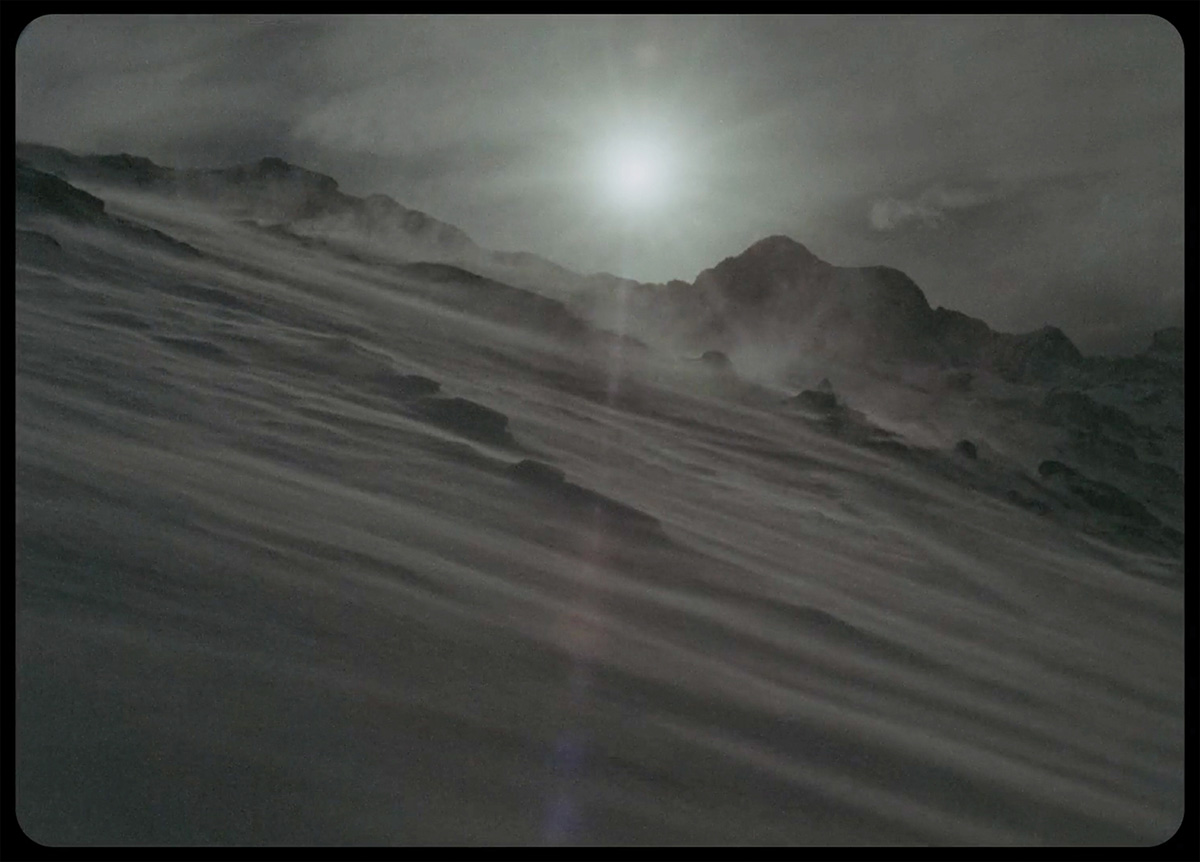

Edouard Decam
Calibration
Film expérimental | 16mm | couleur | 15:49 | France, Espagne | 2023
« Tout a tendance à dériver avec le temps et perd de sa précision de façon périodique. Un ajustement assure que la précision reste au niveau requis. » Comme une invocation, une nécessité de calibration du paysage qui perdrait petit à petit sa condition naturelle, le film projette une nature mouvante, en constante modification et réajustement. Les niveaux de vents, hauteurs de neiges, les compositions physiques, géologiques, morphologiques et temporelles s’étalonnent lentement, la montagne s’équilibre. Dans la continuité de « Volva », film tourné en 2016 à l’observatoire astronomique du Pic du Midi, « Calibration » est une expérience physique de la nature, d’un temps vécu, en plein hiver, isolé dans un refuge de haute montagne durant trois semaines, au contact des aléas du vent, de la neige, des lumières et du temps.
Architecte de formation il collabore dans diverses agences avant de se consacrer exclusivement à sa pratique artistique. En 2006 il est lauréat de la bourse de la Fondation EDF pour les jeunes architectes. Il réalise le projet photographique Landscape scale sur les barrages des Pyrénées qui marquera la direction de ses futurs projets. Il centre ses recherches sur les relations qui se tissent entre l’architecture et le paysage, entre l’homme et la nature. Ses recherches tentent de construire la part impalpable de notre relation au naturel. Ses installations se développent entre photographies, vidéos et volumes construits. En 2016 il réalise son premier film, Volva à l’observatoire astronomique du Pic du Midi. Durant 3 semaines passées à 2871m, il capte inlassablement les traces du temps imprimés dans les expériences scientifiques, l’architecture du lieu et le paysage environnant. Nominé dans divers festivals, Volva est lauréat du prix LOOP Discover à Barcelone. Il intègre la collection du MACBA et du FRAC Normandie Caen. Il a été résident de la Casa de Velázquez et de l’Institut français. Ses travaux sont exposés en Europe, aux Etats-Unis et intègrent diverses collections publiques, FRAC, musées et Fondations. Il vit et travaille à Argut-Dessus, dans les Pyrénées.
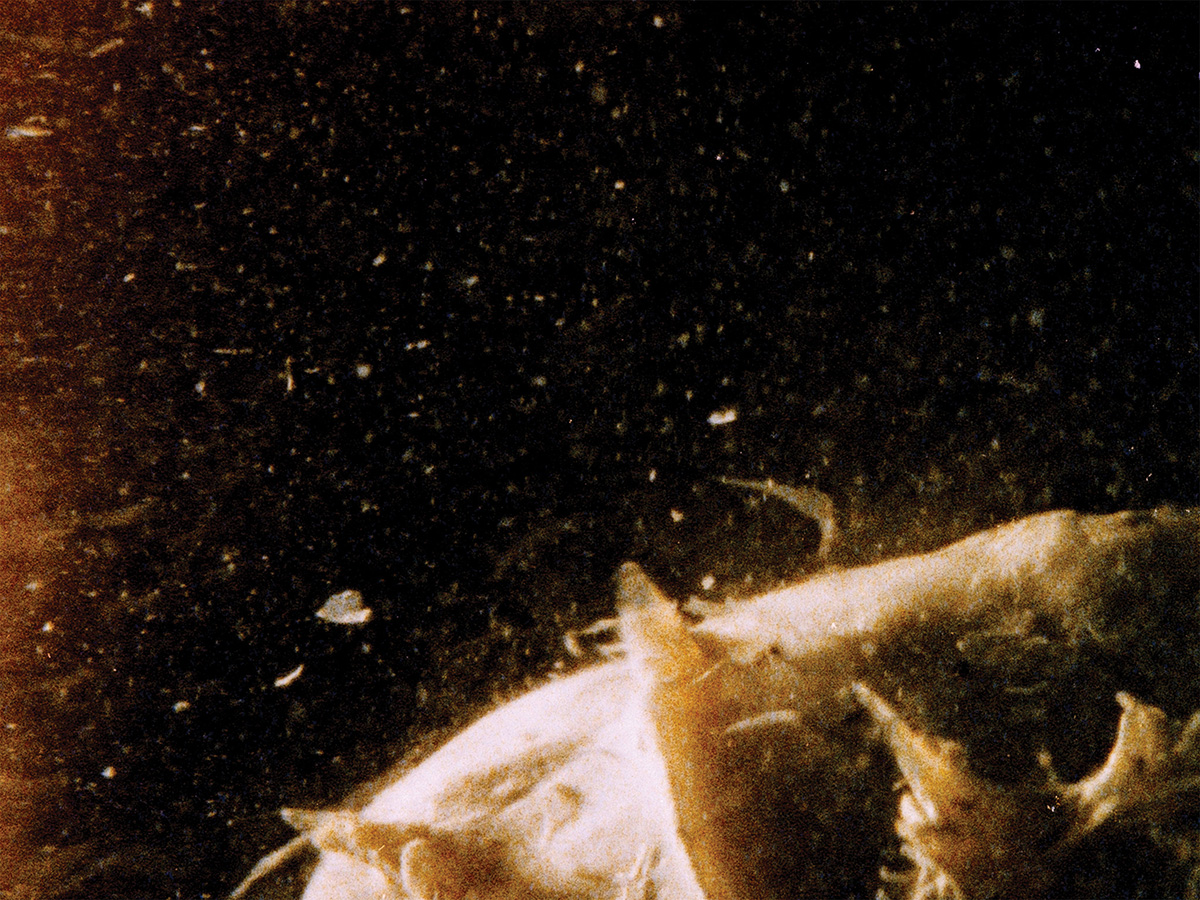

Helena Girón Vázquez
Bloom
Film expérimental | 16mm | | 18:0 | Espagne | 2023
San Borondón is a mythical island that appears and disappears. It has appeared on maps throughout history in the vicinity of the Canary Islands. The legend of the island of San Borondón became so pervasive that, during the XVI, XVI and XVIII centuries, expeditions were organized to find and conquer it. After centuries of oblivion, it has finally been found.
Helena Girón and Samuel M. Delgado Their work investigates the relationship between mythology, history and materialism. Their first feature film, Eles transportan a morte (2021), premiered at the Venice and San Sebastian festivals winning awards at both. It has subsequently been shown at international festivals such as Rotterdam, Cairo, Mar del Plata, Viennale, Hamburg and Sao Paulo. Their previous short films have been shown at festivals like Toronto, Locarno, New York, Ann Arbor and many others. They have made installations and performances in art centers like CCCB (Barcelona), BAM (New York), TEA (Tenerife) or Solar (Vila do Conde).
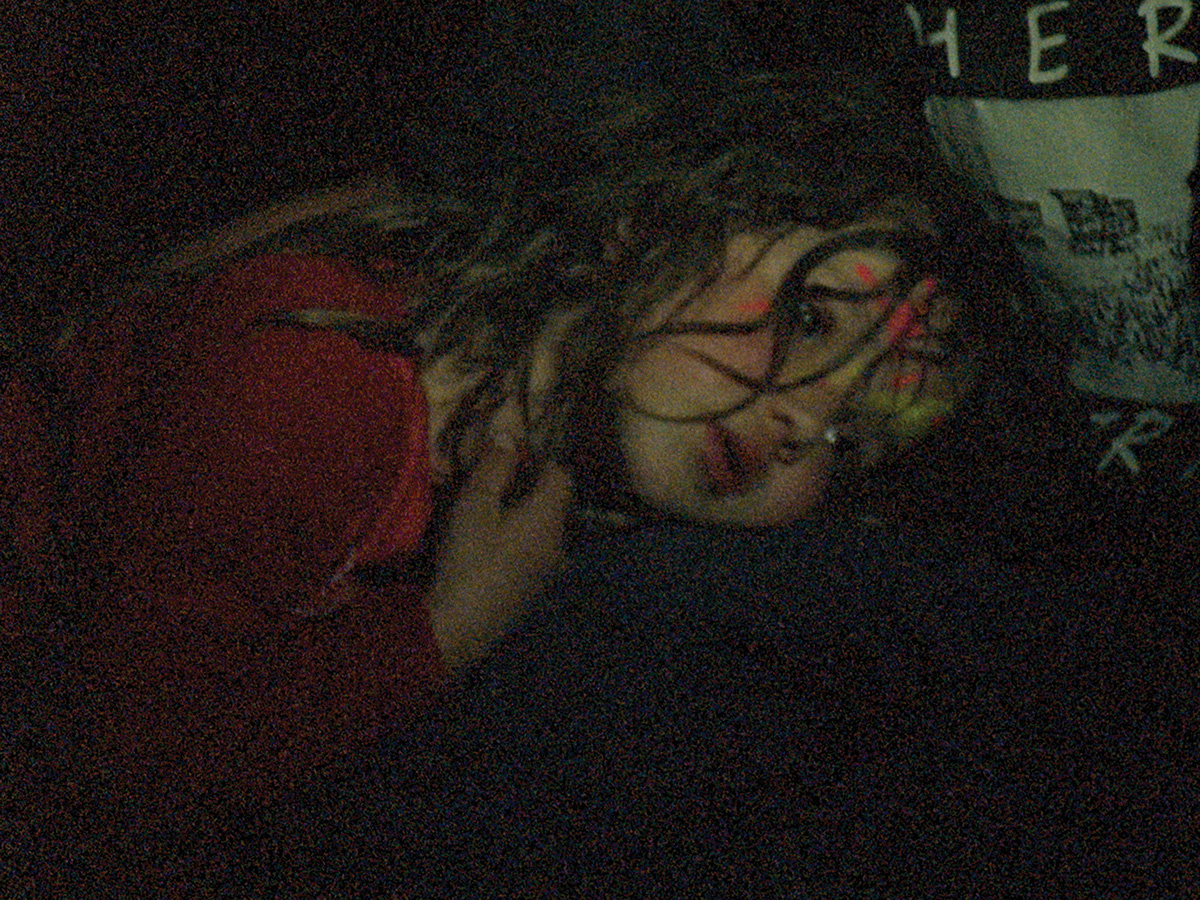

Marina Lameiro, Barber Maddi
Paraiso
Doc. expérimental | 16mm | couleur et n&b | 22:22 | Espagne | 2021
Two men measure the heights of pine trees. A woman listens to what the trees are saying. The children of the village set up the camp. A cloud of digital dots reveals the forest. The pines have said that we can ask. They always called this place “Paraíso”. Machines will come soon.
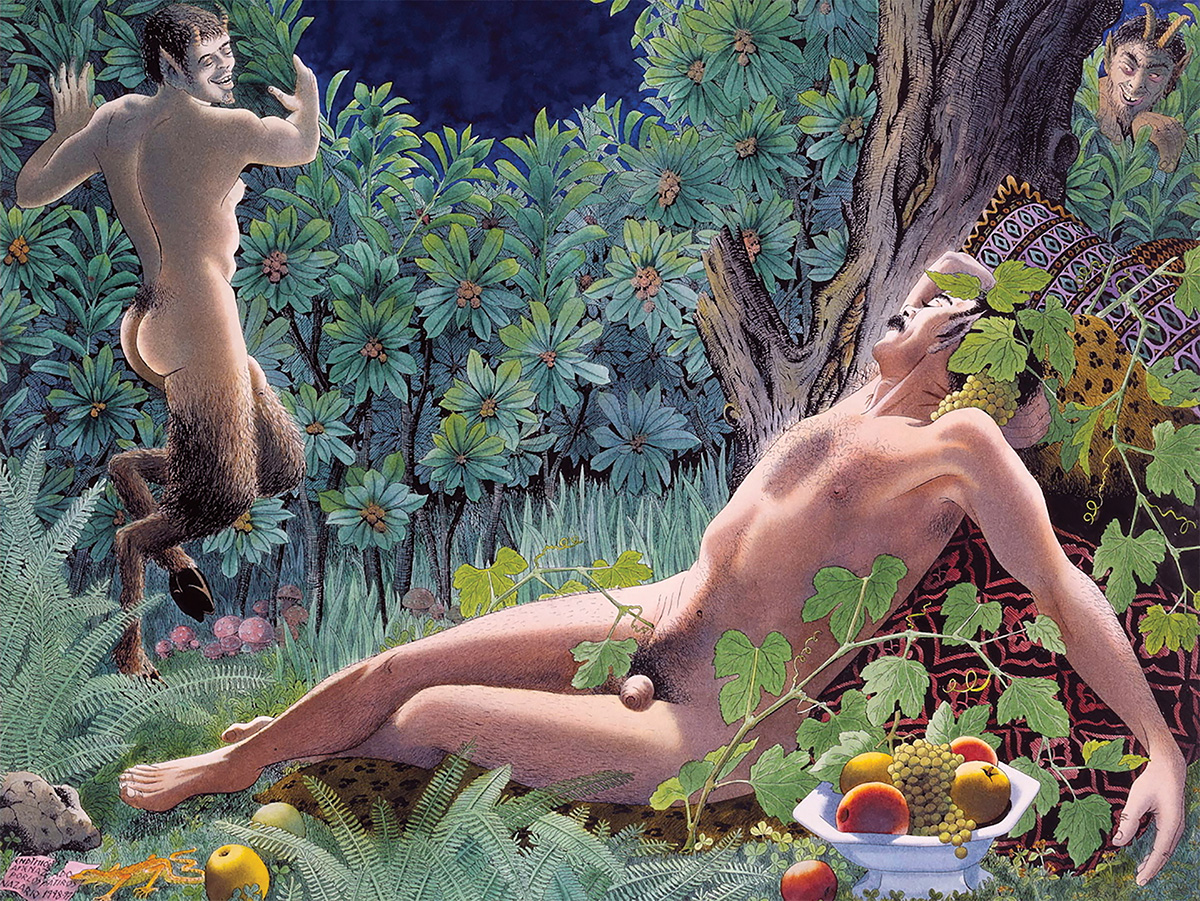

Pol Merchan
El Jardín de los faunos
Doc. expérimental | 16mm | couleur et n&b | 24:0 | Espagne | 2022
Retracing the life and work of Spain's Nazario Luque, groundbreaking queer artist and author of the first openly gay underground comic strips. Romantic and sharply provocative, El jardín de los faunos is an intimate portrait of a man who devoted his life to love and freedom, amplifying queer culture in a country still discovering its freedom after Franco's dictatorship.
Pol Merchan is an artist, filmmaker, and curator for the Xposed International Queer Film Festival. He received his bachelor's degree in Fine Arts from the University of Barcelona and his master's degree from the Universität der Künste Berlin's Art in Context program. His audiovisual work examines visual semantics and cinematic processes while dissecting traditional filmmaking methods. Merchan's films have been exhibited internationally in art institutions and at numerous film festivals around the globe.
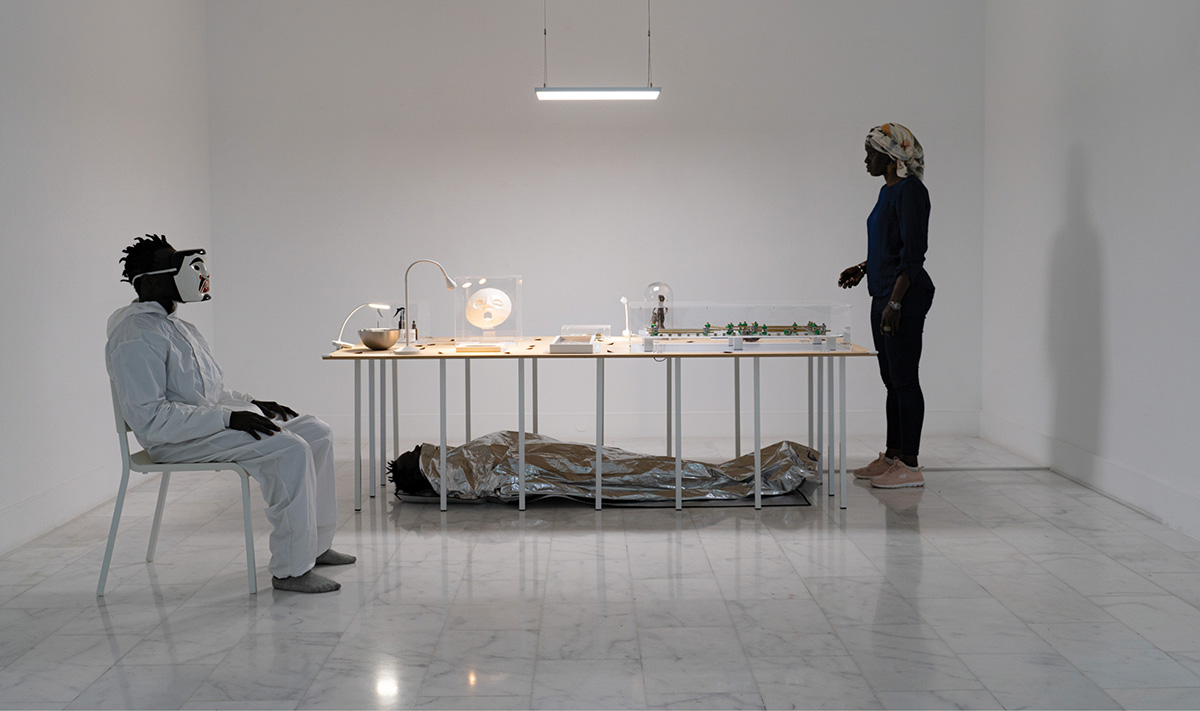

Francis Naranjo
LA POSIBILIDAD DE LA MÁSCARA BLANCA
Vidéo | 4k | | 3:53 | Espagne | 2022
The possibility of the white mask is presented as a discussion table that houses its own jail. Above it is a composition of elements that reflect on the indigenous, on the "others", on the human condition, on contamination, extractivism, memory, migrations, and above all, putting on the table the fracture that separates us. In this proposal we use two masks: One from the African continent: Ghana; and another from the South American continent: Bolivia. Both refer us to ancestral thoughts. Migrations and rites relate them in their intentions. The Ghanaian Ashanti tribe mask (present on the table) are often part of ceremonial attire and worn at religious and social events to represent the spirits of the ancestors. In the mask of the Grandparents (Bolivia, Chiquitanía) tradition indicates that it was a form of mockery that the elders of San José used with the young Chiquitanos, who followed the teachings of the recently arrived Jesuit missionaries. It was the way they tried to dissuade them from embracing the new customs and religion. The possibility of the white mask is presented to us as a ritual where the fractures on which to reflect are different.
Francis Naranjo. Born in Santa María de Guía (Gran Canaria, Spain), in 1961. Multidisciplinary artist who crosses artistic limits exploring in constant research and experimentation, which focuses his process on the investigation of the relationships between the human condition and factors of the prevailing system. He has carried out public works, he has lectured, he has curated, he has written about artists and reflections, he has carried out and participated in numerous individual and collective exhibitions, among other activities. In recent years his activity is focused, above all, in South America.